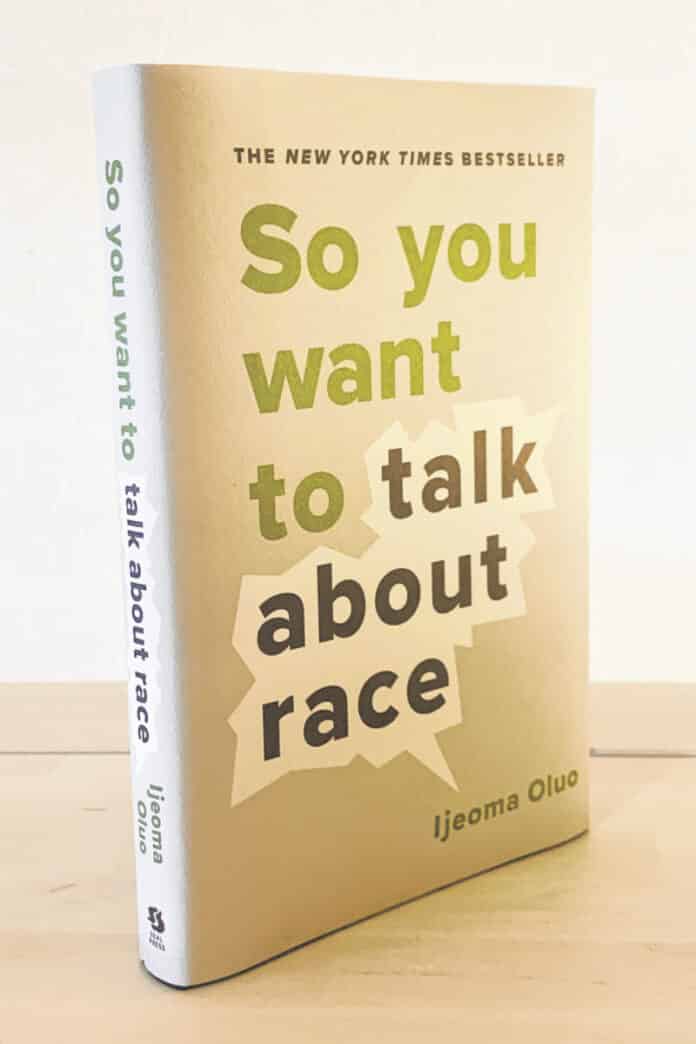Especially since the death of George Floyd, discussions of race and social justice have come alive locally and nationally.
Columbus resident Chris Kevitt knows that some social media chats have stretched beyond healthy exchanges, but she still believes respectful dialogue is possible on the topic.
Kevitt and friend Cindy Allen-Stuckey are encouraging people to link with friends, co-workers, house of worship acquaintances, or others they already know and trust to launch their own book groups to discuss race. And the book they’re recommending is one that they read as part of a group with their Unitarian Universalist Congregation of Columbus: “So You Want to Talk About Race,” by Ijeoma Oluo.
The Bartholomew County Public Library is part of the push, with a discussion of the book planned for 5:30 to 6:30 p.m. Tuesday via Zoom with staff members Shelly Bishop and Maria McCarrick. Kevitt and Allen-Stucky got the idea to encourage others to organize their own discussion groups from a Republic story this summer about the unprecedented reader interest in books discussing race among buyers at the local Viewpoint Books and among library readers.
Mary Clare Speckner, the library’s community services coordinator, and Beth Stroh, Viewpoint’s co-owner, have guided the duo on the matter. In fact, Stroh made books available for discussion kits that the library assembled to be borrowed by local groups deciding to read the book.
Additionally, the local African American Fund recently made grants to the library, local high school libraries and the University Library to purchase books on race-related and diversity topics. In a separate move, Columbus Regional Hospital recently added to its medical library a collection of books on diversity in health care, with Viewpoint’s help.
“So this continuing interest is not just individuals,” Stroh said. “I believe that everyone’s awareness of those topics has really increased.”
Kevitt sees this as a perfect time to bring friends and acquaintances together over this topics with what she has labeled “a kind of do-it-yourself book read.”
But she sees activities beyond mere reading perhaps as the most powerful.
“It’s one thing to read a book,” Kevitt said. “It’s a very different process to talk about it. It helps the content to become a part of you. And I think that that better leads you toward changing.”
Kevitt and Allen-Stuckey felt no special qualifications for spearheading a push for community book groups other than a passion for racial harmony and respect.
“I’m in no way an expert on any of this,” Kevitt said. “But I particularly like this book for a discussion because the author included a discussion guide (with questions).”
Kevitt added that the beauty of a discussion group even among friends or acquaintances is that different people can respectfully challenge each other’s perspective that is inaccurate or skewed.
“I think that the more we entrench ourselves (in a viewpoint), the less curious we are about the other perspectives,” she said.
She mentioned, whatever people decide to do after reading the book, one particular reminder from the author bears repeating for any discussion group:
“Conversations on racism should never be about winning,” the author writes. “This battle is too important to be so simplified. You are in this to share, and to learn. You are in this to do better and be better. You are not trying to score points, and victory will rarely look like your opponent conceding defeat and vowing to never argue with you again.
“Because your opponent isn’t a person, it’s the system of racism that often shows up in the words and actions of other people.”





